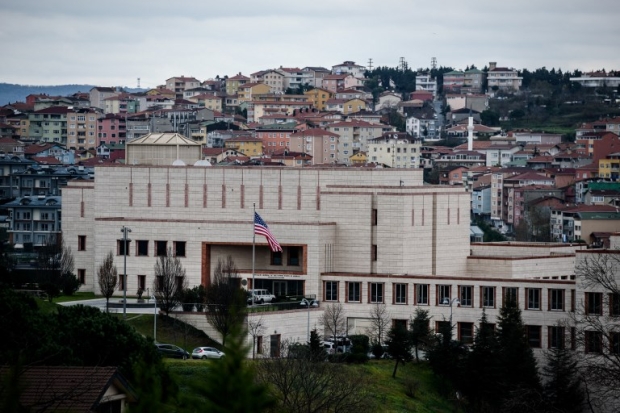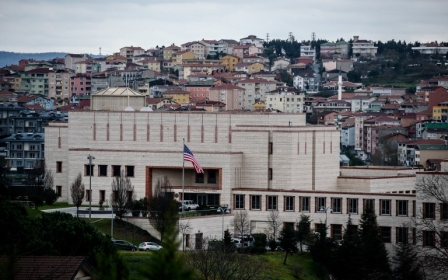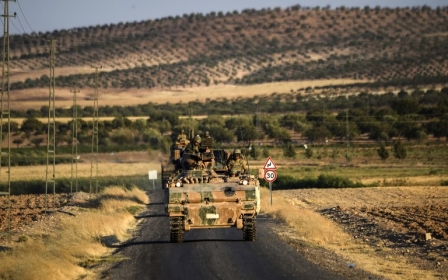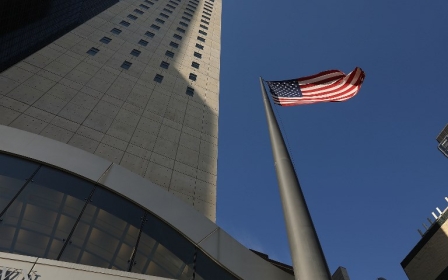ANALYSIS: US and Turkey, a race to the bottom fuelled by decade of tension
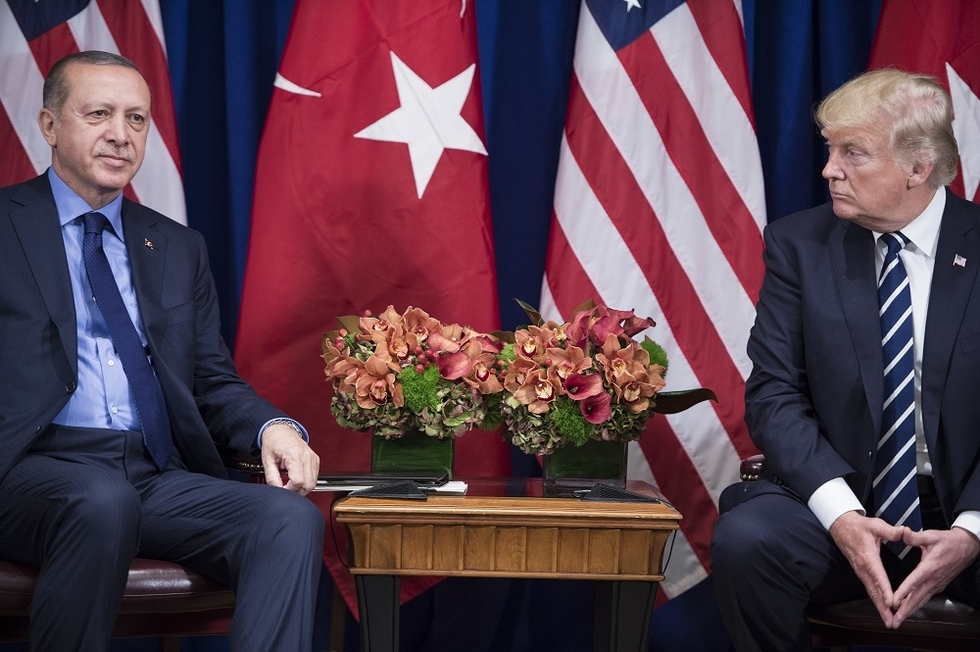
ISTANBUL, Turkey – Every time relations appear to hit rock bottom, Washington and Ankara dig a little further. Consular staff are getting arrested. Citizens are being deprived of travel visas. An extradition treaty is being completely ignored. Their governments back opposing sides in regional wars. No longer is either side bothering with diplomatic niceties in public, and neither side appears willing to back down from their entrenched positions.
A rash of arguments and retaliations over the last 10 days, and swiftly-changing regional alliances, have raised the question of how low can Turkish-US ties sink before they are irreversibly damaged.
John Bass, the outgoing US ambassador in Ankara, has since last week begun speaking out against “revenge-motivated actions of some in the Turkish government” following the arrest on 4 October of a local member of the US consular staff.
The Turkish side, mostly through the media it controls, has often insinuated that the US – if not involved in last July’s coup attempt - is at least harbouring one of Turkey’s most wanted fugitives, the alleged coup plotter Fethullah Gulen.
The US refusal to extradite him despite an existing treaty between the two countries is cited as evidence.
US backing of the Syrian Kurdish PYD and YPG, which Turkey believes is linked to the PKK movement, and arming them for use as its main ground force is another instance of Ankara feeling completely betrayed by its ally.
Analysts spoken to by MEE say the latest fractures is the result of a decade of simmering and unaddressed tensions boiling over, and agitated by the bullish personalities of presidents Donald Trump and Recep Tayyip Erdogan.
Ahmet Kasim Han, a professor of international relations at Istanbul’s Kadir Has University, said these problems have led to a serious problem of unpredictability.
“I am not surprised but even then I didn’t expect relations to sink so low. The unsurprising bit is because the way fragile relations have been handled, the possibility of latent escalation always existed,” said Han.
“Both sides tip-toed around issues constantly trying to avoid a train crash but that has resulted in a worse situation.”
Faruk Logoglu, a former Turkish ambassador to Washington, told MEE that both sides had a very unfortunate role in the crisis.
“The US decision to suspend visas for Turkish citizens is unwarranted, unacceptable and unjustified. It affects people who have nothing to do with these developments,” said Logoglu.
He also took issue with the US ambassador’s remarks last week about “some members in the Turkish government acting on the basis of revenge”.
Both sides tip-toed around issues to avoid a train crash - that has resulted in a worse situation
- Ahmet Kasim Han, professor of international relations
“The ambassador levels that criticism but then you see that the response of the American side to these developments is out of proportion,” said Logoglu.
“This is more than a tit-for-tat measure. A host of unresolved issues like ties with Syrian Kurdish groups the PYD, YPG; Turkey’s rapprochement with Iran and Russia. All of it combined has resulted in this action.”
Seeking balance
But according to Han, Ankara must still balance its response due to the shaky, albeit growing relationships with Russia and Iran.
“Turkey doesn’t see eye to eye with Russia or Iran on many issues. The political-military reality of the region is one reason why Turkey knows it needs to stay anchored to the West,” he said.
Han said the Turkish response to the US visa measure was a sign that Ankara was not seeking escalation.
'The current crisis is a new bottom in relations but I don’t think it will worsen. The relationship has been built in a way that it can withstand such crises'
- Faruk Logoglu, former Turkish ambassador to Washington
“The Turkish response is exactly the same word-for-word as the American statement. The way I read it is that it shows that Ankara has no interest in escalating the crisis,” said Han.
He also said the economic impact of a worsening relationship with the United States, not just regarding bilateral trade but on wider regional level, would ensure that Ankara would look to calm things down.
Future of Incirlik
Both Logoglu and Han are agreed that the Incirlik airbase in southern Turkey used by the United States is not an issue that will be brought to the table, since it is in neither side’s interests to do so.
“The future of Incirlik always pops into people’s minds when such situations arise. Like before, I don’t think Turkey will close the Incirlik base to US use,” said Logoglu. “The current crisis is a new bottom in relations but I don’t think it will worsen. The relationship has been built in a way that it can withstand such crises.”
Despite no desire for escalation, the unpredictability in relations is also due to the two current leaders of these countries, said Han.
He said both Erdogan and Trump played to the crowds and don’t like to retract from their declared positions.
“For Erdogan, it is about playing to his constituents. For Trump, it is about playing to the US Congress. They both see an about turn in their positions as losing political clout,” said Han.
“When this is factored in, it means all possibilities are open. Things could get better or everything can spiral out of control.”
This article is available in French on Middle East Eye French edition.
New MEE newsletter: Jerusalem Dispatch
Sign up to get the latest insights and analysis on Israel-Palestine, alongside Turkey Unpacked and other MEE newsletters
Middle East Eye delivers independent and unrivalled coverage and analysis of the Middle East, North Africa and beyond. To learn more about republishing this content and the associated fees, please fill out this form. More about MEE can be found here.


